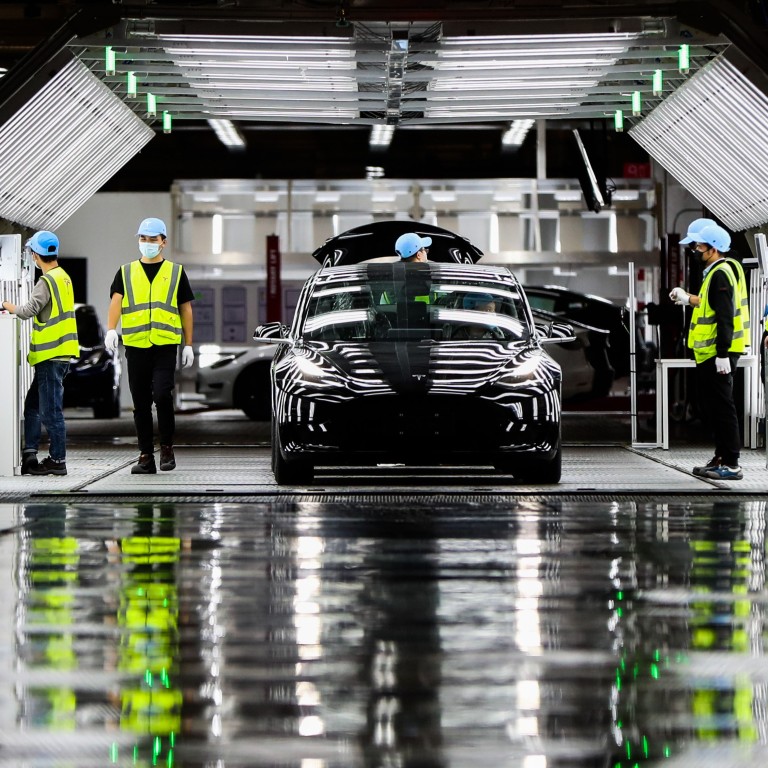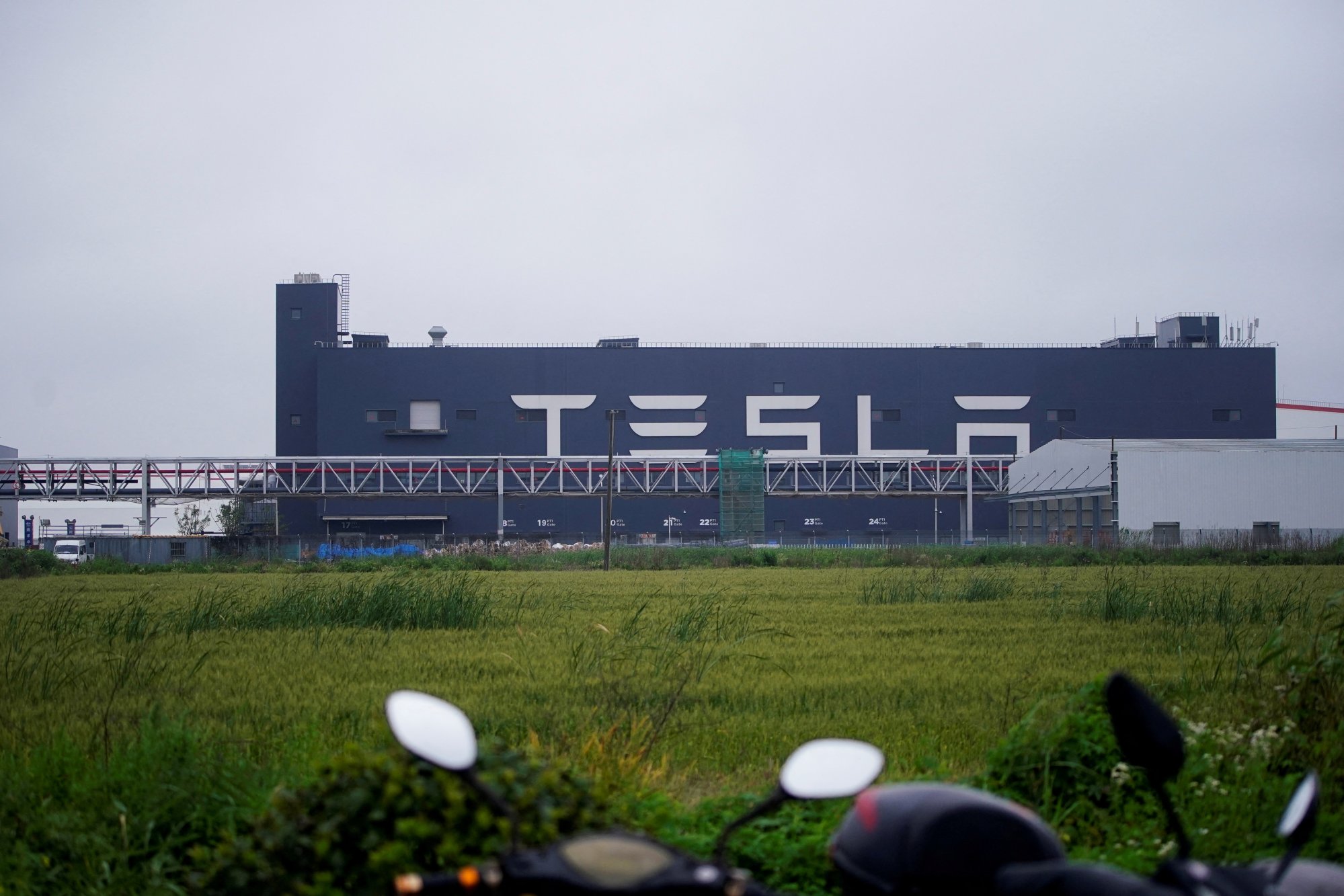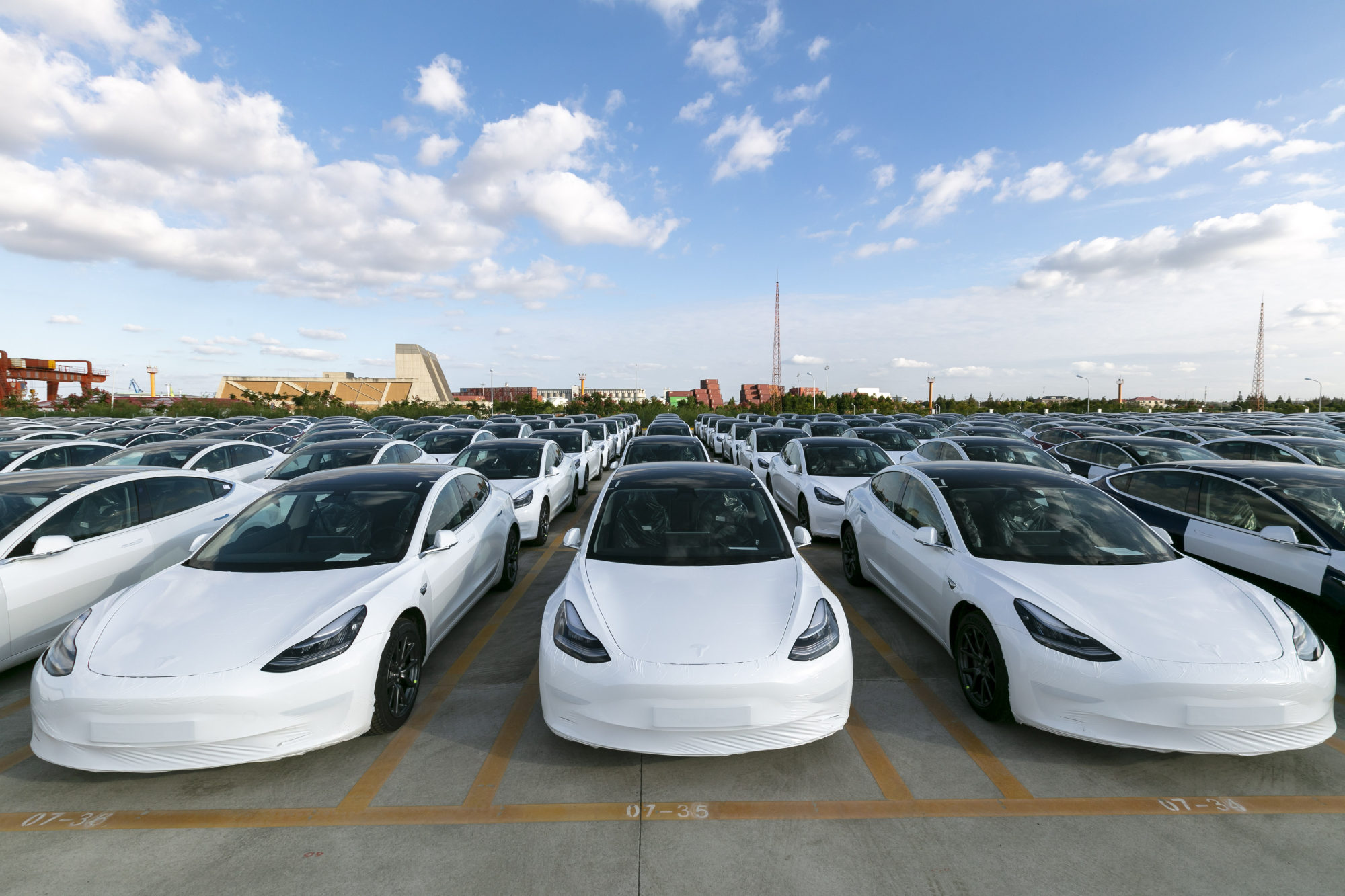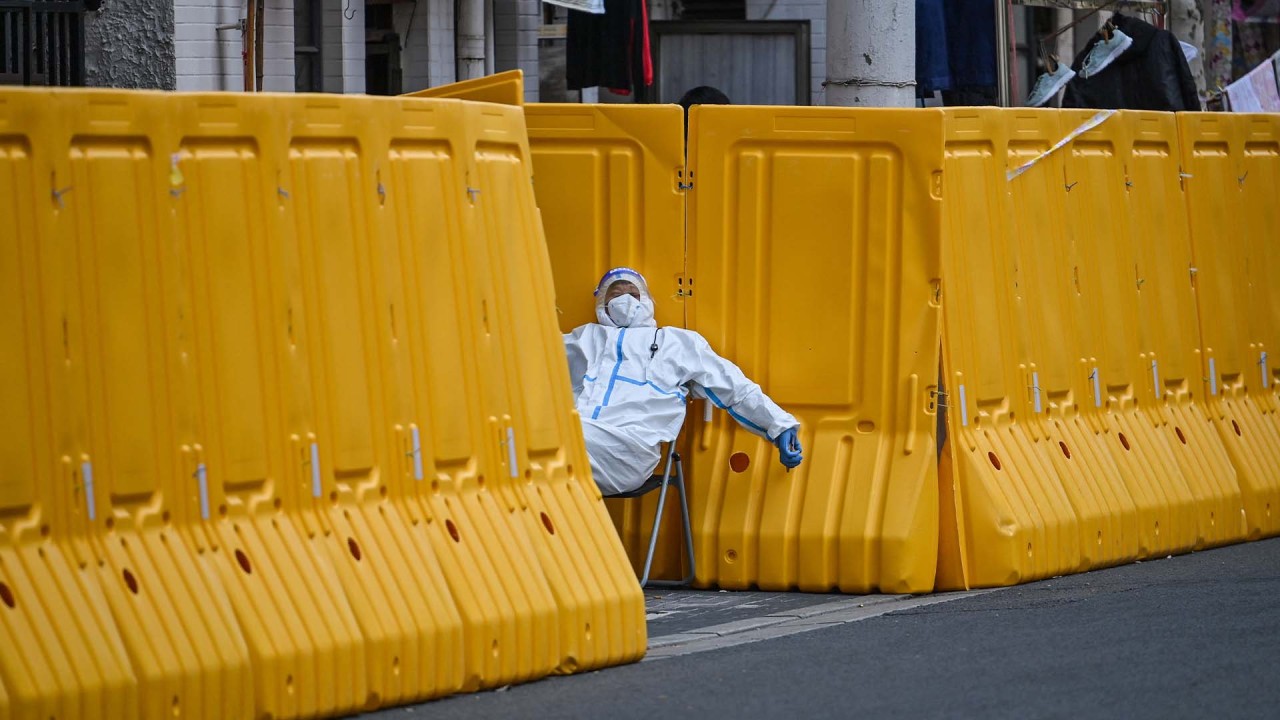
Tesla’s Shanghai Gigafactory operates at half capacity as carmaker’s supply chain is yet to recover from impact of lockdown
- The Shanghai plant, which has a daily production capacity of 2,600 units, is currently churning out only 1,200 units
- Tesla had expected to restore full production at Giga Shanghai from May 16, according to two executives of companies that supply parts to the carmaker
The daily output represents just 45 per cent of its full capacity of 2,600 units a day, Wu Xiaohua, deputy Communist Party secretary of the Lingang free-trade zone administration, said on Tuesday.
The US carmaker had expected to fully restore production on May 16, according to two executives at Tesla’s car component vendors.

Tesla declined to comment to the Post on when it expects to restore production to full capacity.
“Building an electric vehicle requires thousands of components and a shortage of even one of them could delay the manufacturing process,” said David Zhang, a researcher at the North China University of Technology. “It is difficult for Tesla and other Shanghai-based carmakers to restore production to the level before the coronavirus outbreak any time soon.”
Giga Shanghai, which is located in Lingang and connected to Yangshan port by the 32km Donghai Bridge, lost about 50,000 units in production between March 28 and April 18, as the mainland’s most developed metropolis doubled down on pandemic curbs in its quest to achieve its dynamic zero-Covid goal, a strategy that involves stamping out infections with strict mitigation measures.
Tesla, the bellwether of China’s EV sector, has been looking to make up lost ground against its mainland rivals after Giga Shanghai resumed production on April 19, but inadequate inventory of key components has prevented it from utilising its full capacity.
Shanghai will relax the city’s lockdown on June 1, in phases, to gradually return the country’s commercial hub to normality by late June, Vice-Mayor Zong Ming said on Monday.
Tesla and 665 key manufacturers in Shanghai were given the green light to resume production under the so-called “closed loop” system – workers essentially sleeping on site to avoid contacts with outsiders – on April 16.
Giga Shanghai restarted operations three days later, but has been able to use only half its normal capacity due to a lack of components.
The factory built 10,757 vehicles last month, less than a fifth of its production volume of 55,462 in March, according to data from the China Passenger Car Association.
Giga Shanghai, which began operations at the end of 2019, produced 484,130 vehicles in 2021, representing 51.7 per cent of its global total of 936,000 units.

Tesla describes the factory as its “largest export hub” globally and plans to increase its capacity by building a new assembly line soon.
Last week, the US carmaker shipped a total of 9,000 Shanghai-made vehicles abroad.
Separately, Tesla said on Monday that it was recalling 107,293 Model 3 and Model Y vehicles assembled in Shanghai between October 19, 2021 and April 26, 2022, due to defects in the central processor of the infotainment system.


